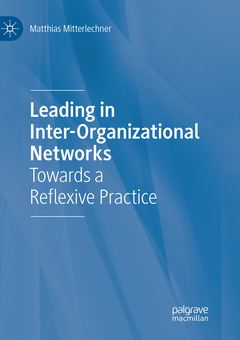Description
Leading in Inter-Organizational Networks, Softcover reprint of the original 1st ed. 2019
Towards a Reflexive Practice
Language: English
Subjects for Leading in Inter-Organizational Networks:
Publication date: 01-2019
Support: Print on demand
Publication date: 09-2018
Support: Print on demand
Description
/li>Contents
/li>Biography
/li>Comment
/li>
In view of the rising importance and prevalence of network-based collaboration, this book aims to meet the need for more theory in this area. Theoretically conceptualizing and empirically describing the practice of reflexive leadership in inter-organisational networks, it explores how member organisations approach reflexive leadership and the associated challenges. Examining these questions from wider leadership theory perspectives as well as a tighter focus upon inter-organizational networks, the author specifically explores how reflexive leadership can be sustained and how social and political contexts may obstruct or support its use, acceptance and practice. Based on in-depth qualitative empirical fieldwork in the Swiss healthcare sector, the book offers a novel practice-theoretical model for use in inter-organizational networks.




